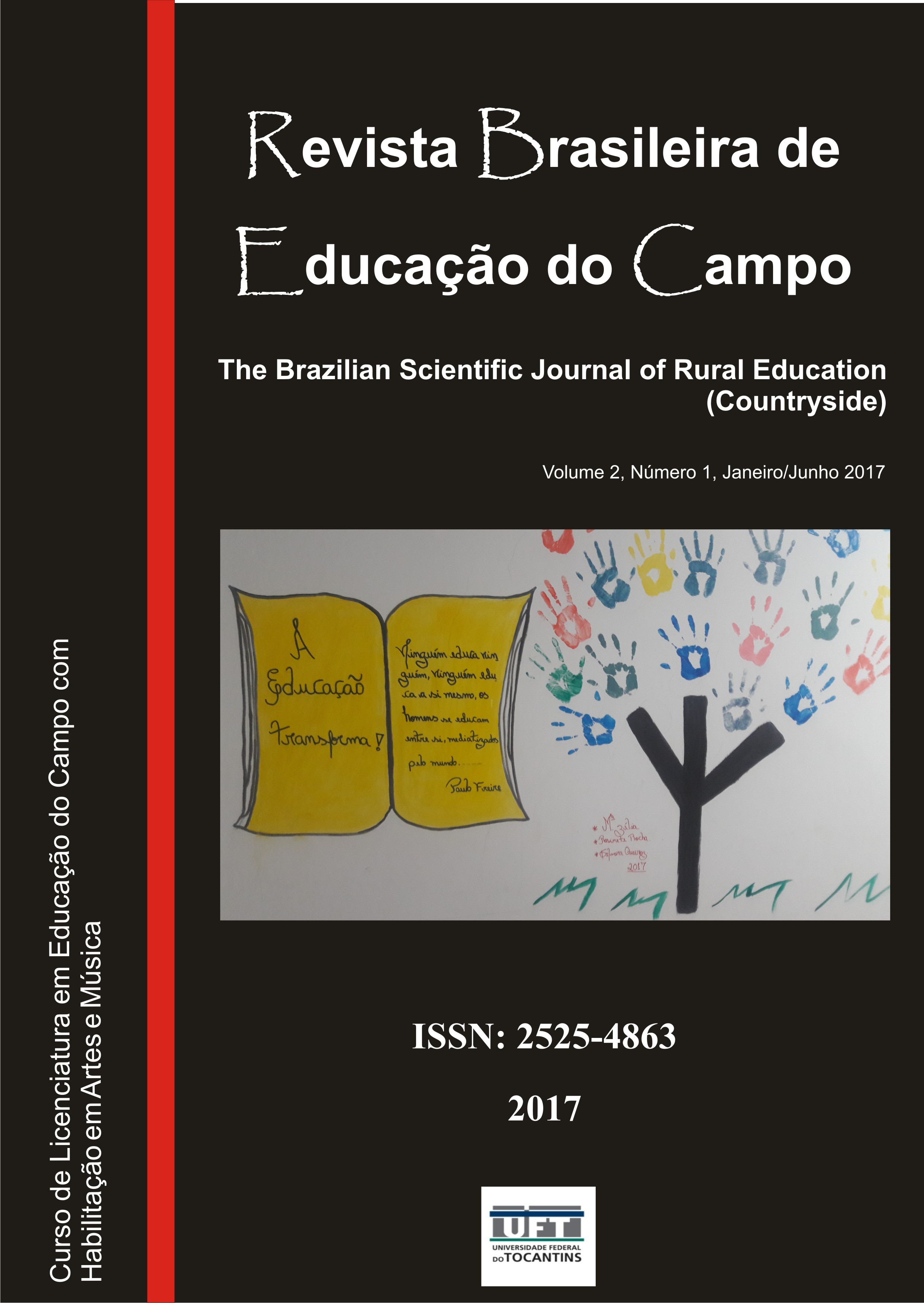Traditional knowledge of medicinal plants and science education curriculum
DOI :
https://doi.org/10.20873/uft.2525-4863.2017v2n1p144Mots-clés :
Plantas Medicinais, Ensino de Ciências, Educação do CampoRésumé
A evolução do conhecimento científico ao longo dos séculos, além dos aspectos tecnológicos e inovações, propiciou o que podemos chamar de “metamorfose cultural” em diversas áreas. Por meio de sua atuação e da ideologia predominante da “ciência como única e/ou principal fonte de verdade” nos deparamos com a perda ou estagnação de conhecimentos populares adquiridos em décadas, tais como o conhecimento tradicional sobre Plantas Medicinais, os quais vêm sendo substituídos pelo conhecimento farmacêutico que contraditoriamente também é produzido com base no conhecimento dos “especialistas tradicionais”. Por meio de uma pesquisa in lócus na Agrovila Nova Conquista, no município de Açailândia, Estado do Maranhão, encontramos alta diversidade de plantas medicinais (42 espécies) encontradas nesta área, visto que detectamos seu uso com finalidades medicinais. A partir de entrevistas gravadas, conversas informais e da leitura de referencial teórico, construímos uma proposta pedagógica no ensino de ciências na escola de Educação Básica Oziel Alves em Açailândia-MA, que poderá contribuir para uma articulação entre elementos da realidade local e os conteúdos trabalhados no ensino de ciências na escola em questão.
Palavras-chave: Plantas Medicinais, Educação do Campo, Amazônia.
Traditional knowledge of medicinal plants and science education curriculum
ABSTRACT. Evolution of scientific knowledge over the centuries and technological aspects and innovations led to what we call "cultural metamorphosis" in several areas. Through its activities and the prevailing ideology of "science as the sole and/or main source of truth" we face the loss or stagnation of popular knowledge acquired in decades - such as traditional knowledge about medicinal plants - which is being replaced by pharmaceutical knowledge that is, in a contradictory way, also produced based on the knowledge of "traditional experts”. Through research in locus in the Agrovila Nova Conquista, in Açailândia, Maranhão State, we found a high diversity of medicinal plants (42 species) found in this area and we identified their use with medicinal purpose. From recorded interviews, informal conversations and theoretical reading, we build a proposed pedagogical approach in science teaching in the Basic Education School Oziel Alves in Açailândia, Maranhão State, which may contribute to the articulation between elements of the local reality and the contents worked in science education at the school in question.
Keywords: Medicinal Plants, Rural Education, Amazon.
Conocimientos tradicionales sobre las plantas medicinales y el currículo de enseñanza de ciencias
RESUMEN. La evolución del conocimiento científico a lo largo de los siglos, más allá de sus aspectos tecnológicos e innovaciones, propició lo que podemos llamar “metamorfosis cultural” en diversas áreas. Por medio de su actuación y de la ideología de la “ciencia como única y principal fuente de verdad” deparamos la pérdida o inmovilización de los conocimientos populares adquiridos en décadas, tales como el conocimiento tradicional sobre las Plantas Medicinales, los cuales vienen siendo sustituidos por el conocimiento farmacéutico que contradictoriamente también es producido en base al conocimiento de los “especialistas tradicionales”. Por medio de una pesquisa in locus en la Agro villa Nueva Conquista, en el municipio de Açailândia, Estado de Maranhão, encontramos una alta diversidad de plantas medicinales (42 especies) en esta área y su uso con fine medicinales. A partir de entrevistas grabadas, conversaciones informales y de la lectura del referencial teórico, construimos una propuesta pedagógica para la enseñanza de ciencias en la escuela de Educación Básica Oziel Alves en Açailândia-MA, que podrá contribuir a una articulación entre elementos de la realidad local y los contenidos trabajados en la enseñanza de las ciencias en la escuela en cuestión.
Palabras clave: Plantas Medicinales, Educación Rural, Amazonia.
Téléchargements
Références
Arroyo, M. (2008). Ofício de Mestre, Imagem e auto-imagem. Petrópolis: Vozes.
Barbosa, W. (2009). Fitoterapia popular e ciência farmacêutica. Belém: NUMA/UFPA.
Camargo, M. (2014). As plantas medicinais e o sagrado: a etnofarmacobotânica em uma revisão historiográfica da medicina popular no Brasil. São Paulo: Ícone.
Diegues, A. (2009). Os saberes tradicionais e a biodiversidade no Brasil. NUPAUB: Núcleo de Pesquisas sobre Populações Humanas e Áreas Úmidas Brasileiras/Universidade de São Paulo: São Paulo.
Fernandes, T. (2004). Plantas medicinais: memória da ciência no Brasil. Rio de Janeiro: Editora Fiocruz.
Freire, P. (1996). Pedagogia da autonomia: saberes necessários a pratica educativa. São Paulo: Paz e Terra.
Ninin, M. (2008). Pesquisa na escola: que espaço é esse? O do conteúdo ou o do pensamento crítico? Educação em Revista, (48), 17-35.
Silva, P., Aguiar, L., & Medeiros, C. (2000). O Papel do Professor na Produção de Medicamentos Fitoterápicos. Revista Química Nova na Escola, (11), 20-22.
Téléchargements
Publié-e
Comment citer
Numéro
Rubrique
Licence
Proposal for Copyright Notice Creative Commons
1. Policy Proposal to Open Access Journals
Authors who publish with this journal agree to the following terms:
A. Authors retain copyright and grant the journal right of first publication with the work simultaneously licensed under the Creative Commons Attribution License that allows sharing the work with recognition of its initial publication in this journal.
B. Authors are able to take on additional contracts separately, non-exclusive distribution of the version of the paper published in this journal (ex .: publish in institutional repository or as a book), with an acknowledgment of its initial publication in this journal.
C. Authors are permitted and encouraged to post their work online (eg .: in institutional repositories or on their website) at any point before or during the editorial process, as it can lead to productive exchanges, as well as increase the impact and the citation of published work (See the Effect of Open Access).














